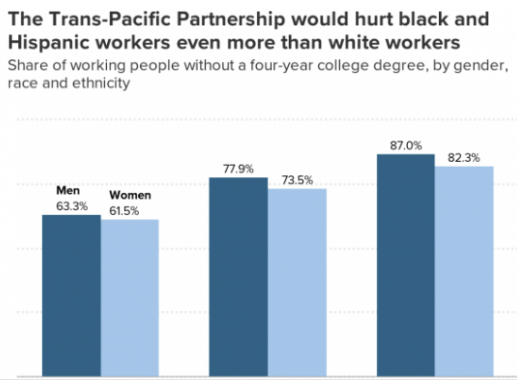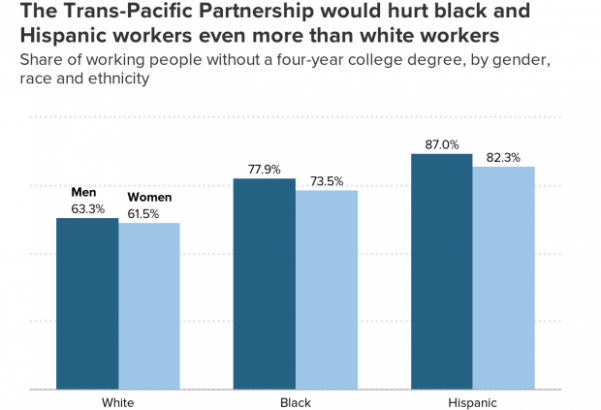Above Photo:EPI analysis of Current Population Survey microdata.
The White House is making one last push for passage of the Trans-Pacific Partnership agreement. However, growing imports of goods from low-wage, less-developed countries, which nearly tripled from 2.9 percent of GDP in 1989 to 8.4 percent in 2011, reduced the wages of the typical non-college educated worker in 2011 by “5.5 percent, or by roughly $1,800—for a full-time, full year worker earning the average wage for workers without a four-year college degree,” as shown by my colleague Josh Bivens.
Overall, there are nearly 100 million American workers without a 4-year degree. The wage losses suffered by this group amount to roughly a full percentage point of GDP—about $180 billion per year. Workers without a 4-year degree constitute a bit less than 70 percent of the overall workforce, but three-quarters of black workers (75.5 percent) and more than four-fifths (85.0 percent) of Hispanic workers do not have a 4-year degree. While educational attainment levels for blacks and Hispanics are rising, differences remain.
















